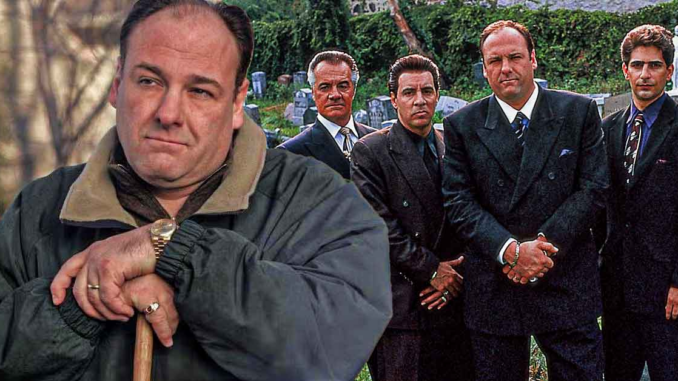
The HBO series The Sopranos redefined dramatic television through its brilliant themes, methodical characters, and continuing storylines. Martin Scorsese had the same impact on gangster movies for the same reasons. Yet, these two topics are in-simpatico in the same conversation.
When he dies, the 82-year-old director will have a bronze bust somewhere in Hollywood, and dozens of actors who have lived a glorious life in entertainment will mourn for weeks because of his Midas touch on film. Yet, when Scorsese stops to think about David Chase and his creation, The Sopranos, the man’s eyebrows stand at attention with rage. Scorsese’s reason is six years old, and despite the time-lapse in rationale, it still doesn’t make much sense.
The Sopranos Were Violent, But Not In That Positive GoodFellas Kind of Way
In 2019, the acclaimed director sat down with the British Film Institute about his latest gangster drama, The Irishman. The “Sight & Sound” interview reviewed Scorsese’s choice of old friends as his actors, his prolific career in and out of his fabled genre, screen adaptations, multitasking Oscar-nominated projects…and The Sopranos.
Scorsese was asked a comparative question about The Irishman compared to his seminal film GoodFellas or HBO’s The Sopranos. The interviewer suggested that “the violence is portrayed differently” in his latest project compared to those other landmark gangster films. “You can’t simply enjoy the violence,” the interviewer posed to Scorsese. “[In The Irishman] the moral cost is being counted as the violence is experienced.”
There’s no doubt about discerning the differences between all three projects. They are all about gangsters—foul-mouthed, drastically violent, law-breaking gangsters. Just because the gangsters depicted in The Irishman were closely associated with the president of the Teamsters doesn’t mean they were any less of those attributes. That didn’t stop Scorsese from making a truly head-scratching statement.
Yes, exactly. I think that’s what I was struggling to get to, without verbalizing it. To live a life like that – you pay, they all pay. Everybody around him and her, they all pay. And so it’s not a glamorous life, it really isn’t. And yes, there are elements of humour – a dark humour so to speak is certainly there – but this picture goes another way…I think I only saw one episode of The Sopranos, for example, because I can’t identify with that generation of the underworld. They live in New Jersey with the big houses? I don’t get it. They use language – four-letter words – in front of their daughters, at the dinner table? I don’t get that. I just didn’t grow up that way.
When Scorsese was boo-booing The Sopranos with this interview, there was no telling if he was thinking of Casino. Sam “Ace” Rothstein (Robert De Niro) and his blushing bride Ginger McKenna (Sharon Stone) had some colorful conversations denoting a few expletives and bodily harm while their impressionable daughter Amy (Erika von Tagen) was down the hall of that palatial estate paid for by casino dollars and a few vocational luxuries of crime.

Gangster Movies and TV Series: Can’t They All Just Get Along?
Scorsese is talking about The Sopranos, but set that aside. Where do movies or TV series about gangsters differ? The location may be New York City in 1863 (Gangs of New York), the barrio of East Los Angeles in 1972 (Blood In Blood Out), Staten Island in the 1950s (The Godfather), or the 1980s during the advent of crack cocaine (New Jack City).
The commonality is a boss with the power and savvy to make money off the backs of community members, usually by any means necessary. There is gratuitous violence, swaths of cash, salty language, and plenty of houses more prominent than a 3/2 amid suburbia. How is the scenario any different from one of the several gangster movies created by Scorsese? Other than the name prominently featured on the slate board, not much.
Just because someone is the best at doing something doesn’t mean no one else can do something comparable. That’s like believing only Arnold Schwarzenegger can make action movies, Stephen King alone can write horror screenplays, or even Henry Cavill is the only Superman. None of the arguments are unassailable. Each has holes like Swiss Cheese; the only absolutes would be created out of bias.
For instance, if someone were to ask a maven of a particular genre about another notable person who created something similar in fascination and influence. Then, that discussion became so polarizing in the ethos of pop culture that fans are talking about it six years later. Stranger things could happen.
